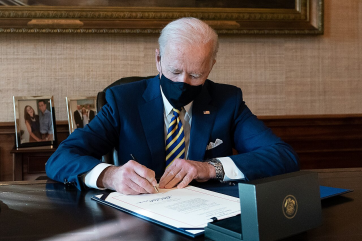Universities Will No Longer Ask Students to Disclose Criminal Records on Admission Forms
By Beth GoldenRecently, the White House called on businesses and education institutions to take the Fair Chance Pledge in order to eliminate barriers to employment and education for Americans who were convicted of criminal offense. Acting on the pledge, universities are now removing questions and enquiries about applicant's criminal records from the admission forms.
Last week, the State University of New York (SUNY) made history when it's trustees voted to revise its admissions form and remove questions about applicant's' criminal past beginning the 2018 enrollment cycle.
In a statement, university Chancellor Nancy L. Zimpher said, "Today's policy revision is a milestone achievement for SUNY, one that positions our university system as a leader in what has become a national movement to expand access and educational opportunity for individuals with a felony history."
Emily NaPier from the Center for Community Alternatives said that, "[This] will open the doors for thousands of qualified applicants around the state who previously would have been deterred by the inquiry into their past."
SUNY, largest university system in the United States joins 86 other public colleges and universities who have committed to omit questions about applicant's incarceration. These institutions cater to about 1.8 million students according to the Department of Education (DOE).
Some parents and students may not like the idea but The Center for Community Alternatives found in their study that, "there is no empirical evidence to indicate that criminal history screening makes college campuses any safer."
Further, the questions about student's criminal records will still be asked in certain circumstances like availing of housing facilities inside the campus, participating in sports and research activities, the same goes for those who would like to avail of internships and overseas scholarships. Incarcerated and registered sex offenders will be required to identify themselves to local authorities while those convicted of felony will be barred from certain courses following legal and industry requirements.
This is good news since a great number of students who would like to get into college or return to their studies after they have been released. Some of them are easily discouraged and immediately drops the application after reading these types of questions.
It is important to note that education plays a big role in reforming offenders and convicted felons. Alison Hill from the Loyola University Chicago School of Law observed that, "Inmates who receive academic instruction, or vocational training, are more likely to gain employment upon release. They have a significantly less probability of recidivating."
Education Secretary John King sums it up well, "If we do criminal justice reform only by doing sentencing reform, we will not have done enough. We've got to couple that with investments in education and job training and clearing away barriers to meaningful second chances."








